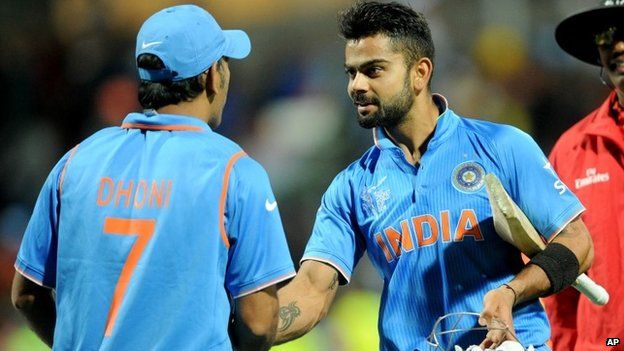Cohabiting is about accepting each other as human beings with human bodies. As the bumper sticker almost says: “Stuff Happens.” Illustration: Anna Parini
Moving in with someone can do many things for a relationship. It’s a way of ramping up the commitment and lowering living costs. It means you get to enjoy more time in each other’s company while simultaneously doubling your daily shirt-and-sock options. It’s also that thing you often do when you reach a certain point, and, while I’m generally against things we do simply because we feel we should, I can’t deny that sooner or later, in any relationship, I find myself wondering about living together.
I’ve just moved in with a man for the fourth time in 15 years (different men), and there’s a lot I’m going to do differently this time, because there’s a lot I’ve learned. So in the spirit of sharing, I’ve developed the following set of handy rules.
Behold, my Ten Commandments for Cohabitation.
1 Thou Shalt Start With A Blank Canvas
As the saying goes, there’s no accounting for taste. That may be true, but it’s important that you both have an equal chance to inflict your aesthetics upon a place. Fair’s fair. It’s not good for your psychology, or the power dynamics of your relationship, to slot yourself around someone else’s stuff and, by proxy, their past. So even if you’re moving into your paramour’s place, gut it, decor-wise, and start from scratch – together. From then on, it’s about negotiation, tolerance and compromise.
Example: my boyfriend likes crows. One time I walked into the bedroom to find a crow cushion on the pillow so realistic that it looked like an actual dead crow. I took a photo to put on Instagram, and then reacted with an almighty shriek.
Compromise: the crow cushion doesn’t go on the bed any more, and we continue to have sex.
2 Thou Shalt Divvy Up The Chores, Somehow
An ex told me that he found tidiness as oppressive as messiness. Nice try, huh. But it’s all too easy to forget whose turn it is to clean the hob and, unless you’ve got a dusting fetish, there’s nothing erotic about Mr Muscle.
If you can possibly afford to, splash out on a cleaner. I’d go so far as to say it’s worth two bottles of wine a fortnight, and that’s not something I would say lightly. The main peril of this, if you’re working class, is guilt – and guilt is even less erotic than Mr Muscle.
3 Thou Shalt Neither Repress Nor Celebrate Thy Bodily FunctionsI’m sorry to include this – I know there are recipes in here and you’re halfway through your brunch, but this is a crucial one.
Catherine Zeta-Jones once cited the secret to a long-term relationship as “separate bathrooms” (I know, they split – but they’re back together!). Not an option for the non-Hollywood stars among us, alas.
But maybe it’s also about accepting each other as human beings with human bodies. As the bumper sticker almost says: “Stuff Happens”.A friend of mine overshot it when she took her boyfriend of nine months to stay in a luxury shepherd’s hut for a weekend, as a “living together practice run”. I think we can all see where this one is going. The toilet was a funnel, a metre or so from the bed, behind a curtain. They split soon after. Another friend went to the doctor’s with chronic stomachache a few weeks after moving in with her man, only to be told it was because she was repressing wind.
I’m not saying you have to let it all hang and fly loose, but try to relax. Your body, your home, your air space.
4 Thou Shalt Not Steal… Food
My first experience of living with people that I wasn’t related to (and therefore didn’t expect to fight me at the dinner table) was at university. And it was there, within the walls of my student halls in Liverpool, that I learned one of the harshest lessons about non-familial domesticity. One evening, when I returned to the communal kitchen to retrieve my dinner, I found that someone had stolen my jacket potato from the oven. Then I remembered Susan, scurrying past me in the corridor, looking distinctly uncomfortable as she gripped her hoodie around her midriff, looter-like. Of course she denied it. But I knew she was lying.
And yet, after I’d angrily eaten a neat tin of tuna, I found I could let it go. Furthermore, I felt a deep need to go forth and perform the exact opposite of my natural instinct at that point, which was meanness. These days, I fill the fridge and I don’t count my teabags. I expect anything I leave in the freezer to go, and I don’t care. It actually feels nice. Because meanness doesn’t even make you that much less skint, but what it does make you is miserable.
So I’m grateful to that girl now, for what she taught me. No, really. Get in touch, Susan. Or at least send me a potato
.

Emma Jane Unsworth: ‘Tell your partner about their bad habits. The ones they don’t know about. Do it tactfully, but for God’s sake, do it soon.’ Photograph: Michael Thomas Jones for the Guardian
5 Thou Shalt Be Open To New ExperiencesIn a pressure-cooker space with someone, you can discover life-changing things that make you wonder how you survived without them. My former housemate Eden brought
RuPaul’s Drag Race into my life, for which I am truly thankful. I introduced my best friend Alison to pesto with pasta when we lived together at university in the late 90s. As she destroyed the entire bowl, she looked and sounded as if she was having an orgasm – maybe she was. We now look on it as a foundation stone of our friendship, and given the fact she eats it at least once a week now, it’s a source of much pride to me that I was able to give her the gift that keeps on giving. We’ll always have pesto.
6 Thou Shalt Allow Each Other A Few Ludicrous Idiosyncrasies
This again boils down to compromise. My mum vigilantly turns off every single plug socket every night before she goes to bed. I think she once saw an episode of Corrie where a dodgy toaster burned down Sally Webster’s kitchen, and it stayed in her mind. She also unplugs the microwave because someone told her the clock uses up a lot of electricity overnight. I’ve tried to explain that this is simply not true, but not even Google can convince her otherwise.
My dad doesn’t seem to mind her frenzied routine. Nor should he. Because you know what? Everyone’s allowed their minor idiosyncrasies. Everyone is allowed to be ludicrous about one thing, once a day. Even the girl I lived with in my early 20s, who couldn’t find her keys one evening and decided to “lock” the front door by pushing it to and wedging the Henry vacuum cleaner behind it. When I came home, I thought we’d been robbed. Then I saw the vacuum cleaner, and realised I just lived with an idiot. But, you know, so did she, some nights.
7 Thou Shalt Not Inflict Animals Upon Your Beloved
Animals can be a deal-breaker. Allergies aside, some people don’t like the idea of furry creatures around things like food and furniture. I love cats. To me, a house without cats in it feels resonantly sad, but not everyone’s the same. I’m still half-convinced my last attempt at romantic cohabitation ended when I got a cat and it took to urinating on the duvet, generally square on the crotch of whoever was in bed. Morning! It materialised that as well as an unpleasant experience, this triggered bad memories for my then boyfriend, who had once lived with a cat called Moon, who’d systematically terrorised him.
But really: never live with anyone who doesn’t like cats. Those people are suspect and, at the very least, social perverts.
My mother turns off every plug socket before she goes to bed, and the microwave. My dad doesn’t mind – and nor should he
8 Thou Shalt Have A TV
And the internet. My most recent housemate and I tried to do without both for a year, in a bid to “be more productive”. We lasted a month, then we got online (mainly for RuPaul’s Drag Race). Books, I hear you cry! What about books? Well, books are all well and good, until you have a hangover. Then you just need something to look at while you sweat and cry for pizza. Entertainment options other than each other are the key to a happy home on those evenings, or days, when you just want to flop. I also recommend a karaoke machine.
9 Thou Shalt Not Assimilate Resentment
The assimilation of resentment is the death of love. Tell your partner about their bad habits. The ones they don’t know about, I mean. Do it tactfully, but for God’s sake, do it soon.
I have a terrible habit of leaving dirty mugs everywhere; something I only discovered after a man I’d been living with moved out and the mugs began to accumulate on the sink, the toilet, cistern, all of the windowsills – until I ran out of mugs and looked around and saw my awful truth. I called my ex and asked whether he thought I had a mug problem. “Oh, that,” he said. “I guess I just got used to picking them up every day.” “You must have hated me a bit for it, though?” I asked. To which he replied: “Well, I guess I sort of got used to the resentment, too.” (Insert Blaring Relationship Countdown Siren, set at T-minus two months.)
10 Thou Shalt Revolutionise The Meaning Of Romance
Cohabitation brings new meaning to what constitutes romantic behaviour, and you must embrace this, because we’re not getting any younger, and life is short, and love is the greatest, wherever you can find it. You’re not dating any more, and some of the more superficial magic might be gone – but there’s a wealth of possibilities by which you can demonstrate passion and kindness within the confines of your new situation.
Before we said we’d move in together, my boyfriend was staying at my flat and I gave him my keys for the day while I went out to work. My keys were a daily source of woe – identical Yales for a two-lock door; the great Law of Sod meaning I invariably tried the wrong key first, and would stand there, jangling and cursing and disturbing the neighbours. When he returned the keys, he had bought two coloured fobs from the hardware shop on the high street, and put them on. He even gave me an easy way to remember which was which: Blue for Bottom; Gold (yellow) for Top. Now when I open my door it’s a breeze. My everyday is that bit easier. If that’s not true romance, then I don’t know what is .






 ‘
‘